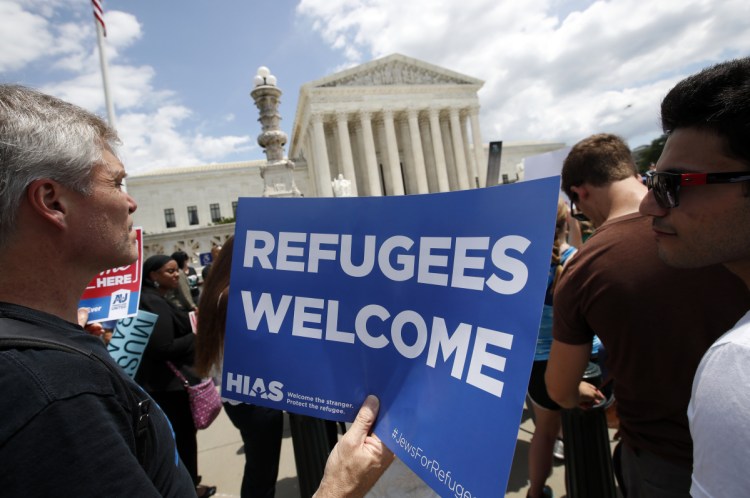The Supreme Court has upheld President Trump’s travel ban by a vote of 5-to-4. It restricts, to varying degrees, the entry of citizens from seven countries: Iran, North Korea, Syria, Libya, Yemen, Somalia and Venezuela. Most of these countries are Muslim-majority nations.
Justice Sonia Sotomayor stated in the dissent: “The majority here completely sets aside the president’s charged statements about Muslims as irrelevant. That holding erodes the foundational principles of religious tolerance that the court elsewhere has so emphatically protected, and it tells members of minority religions in our country ‘that they are outsiders, not full members of the political community.’ ” She also compared the opinion to one that came down in 1944 in which the court blessed the internment of Japanese-Americans during World War II.
Though the United States has welcomed many refugees, there have been times that the United States government has kept people of a particular religious group or a particular ethnic group out of our country. That step has been taken even though the Constitution guarantees that there should be no impediments to people worshipping as they please and the Bible is clear that those people who are not from here should be welcomed.
As Shoulder to Shoulder, a national organization on which I serve as a member of the executive committee, said, the Supreme Court upheld the “de facto Muslim ban that targets our Muslim neighbors on the basis of their religious affiliation. As we have said time and time again, targeting people based on their faith is not in keeping with the American ideals that we as American faith communities seek to uphold and advance. Today’s ruling will long be a stain on our country’s moral conscience, joining the woeful ranks of the Korematsu and Dred Scott rulings. This decision continues the abhorrent impacts that the ban has already had on individuals, families and communities.
The Rev. Richard Killmer
Yarmouth
Send questions/comments to the editors.



Comments are no longer available on this story